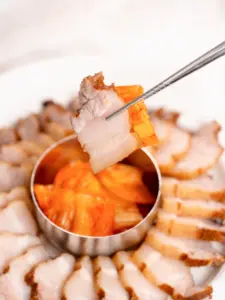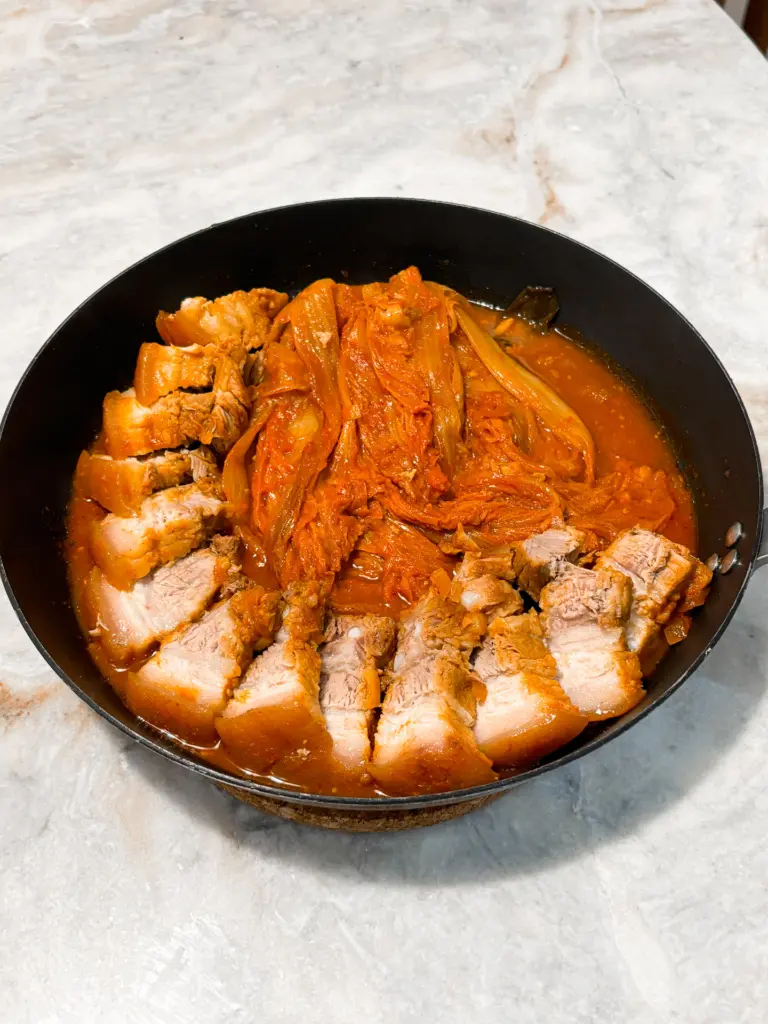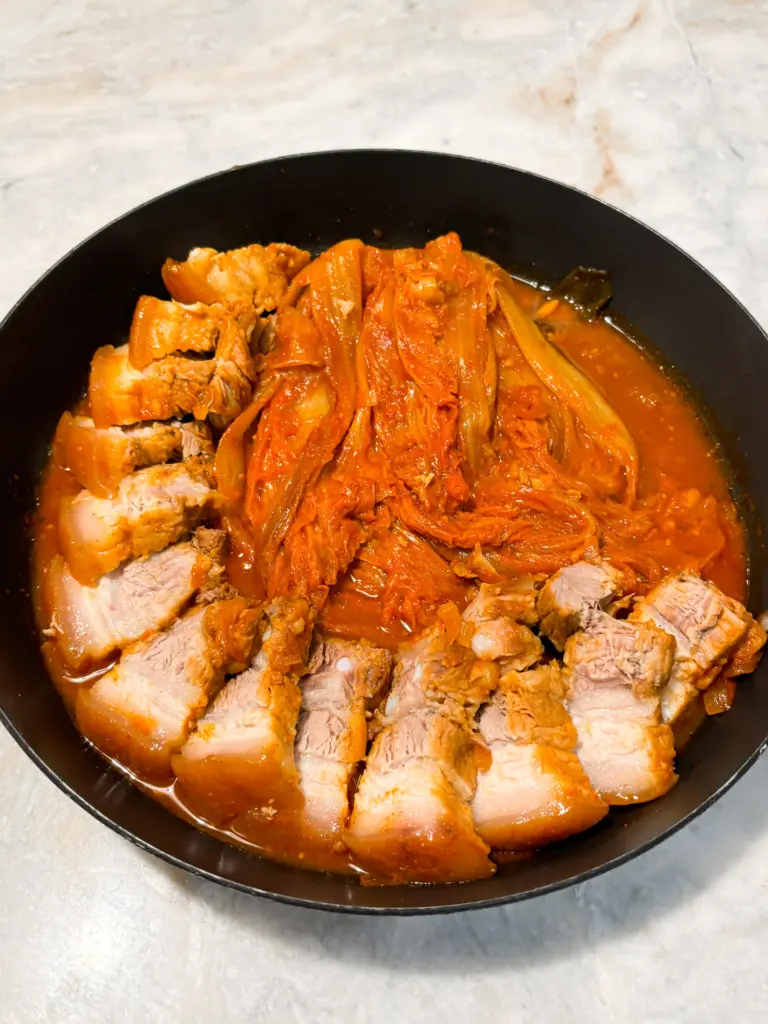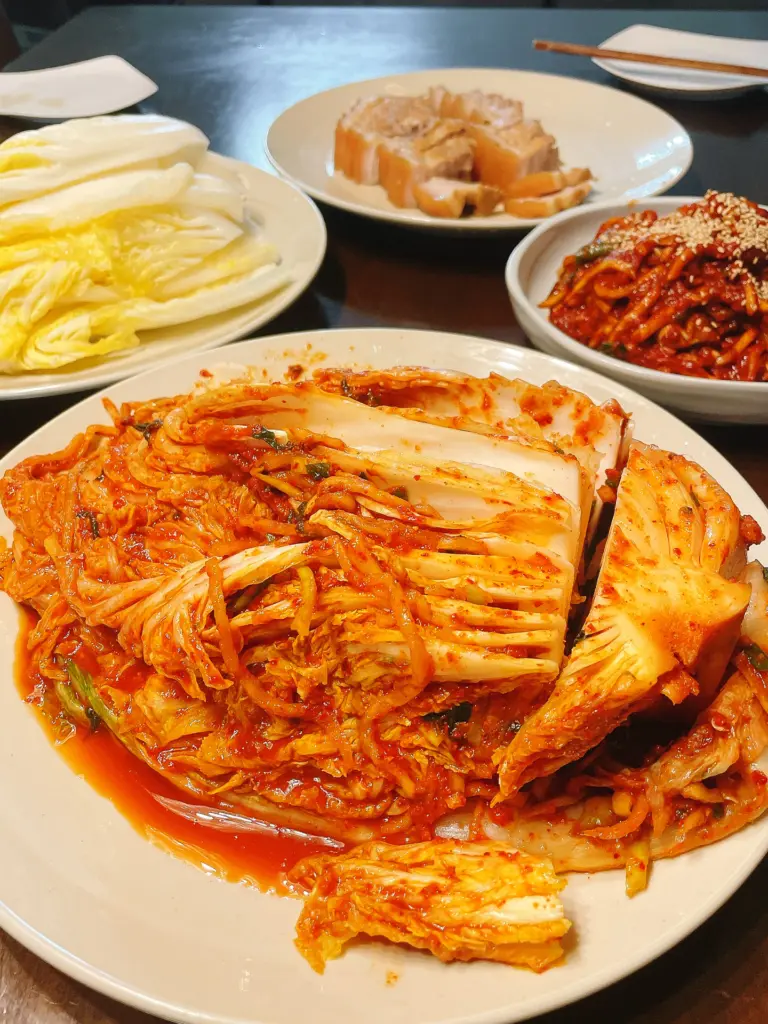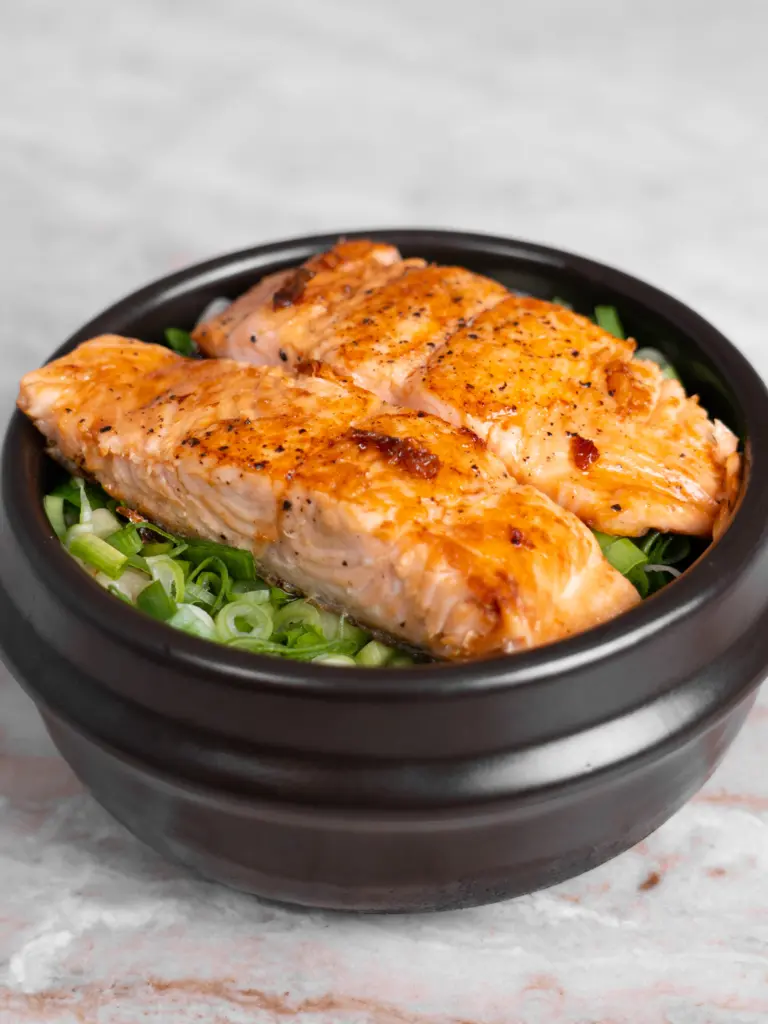Cola Bossam: Easy Korean Bossam Kimchi with Coke
This is the easiest and most tender cola bossam! The secret ingredient of the day is cola – something you can find anywhere. Adding cola makes a huge difference in the texture and flavor of the pork. Today I’m going to share my secret bossam recipe!
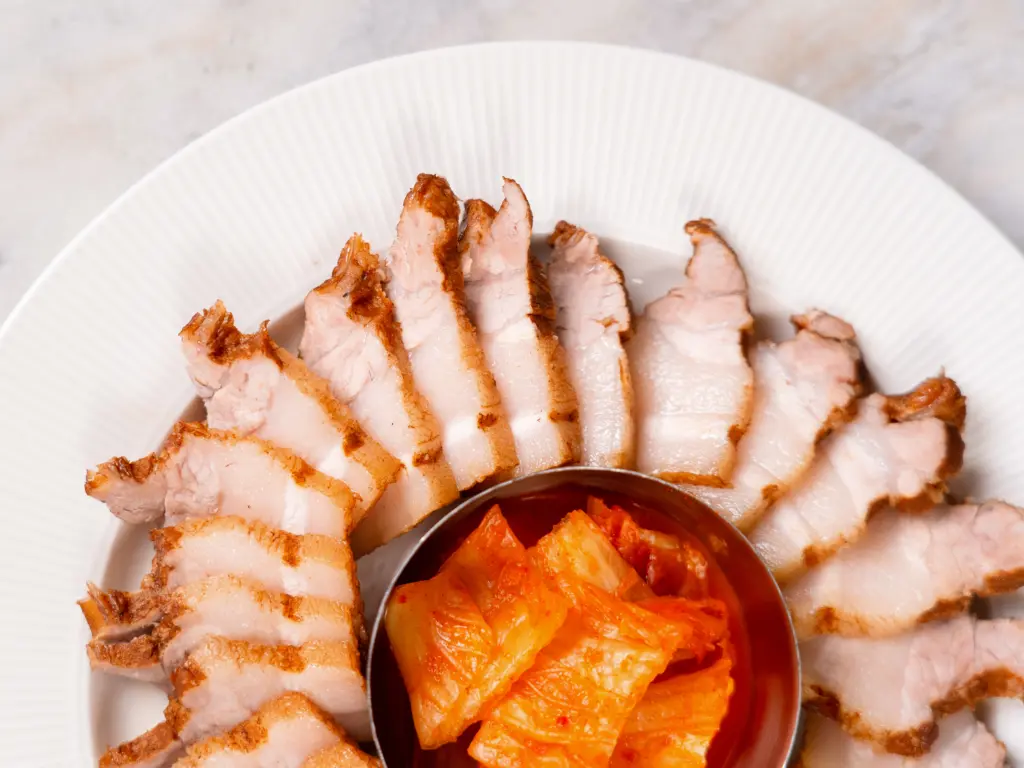
What is Cola Bossam? 콜라 보쌈
Bossam Korean boiled pork belly is a type of ssam 쌈 (Korean wrap) made with boiled pork belly wrapped in lettuce, salted cabbage leaves, or kimchi. It’s nothing like plain boiled pork! So I can say it’s bossam boiled pork wraps. To make bossam, the pork must be simmered for a long time to remove any gaminess and achieve a tender texture. This process requires carefully selected ingredients and precise heat control.
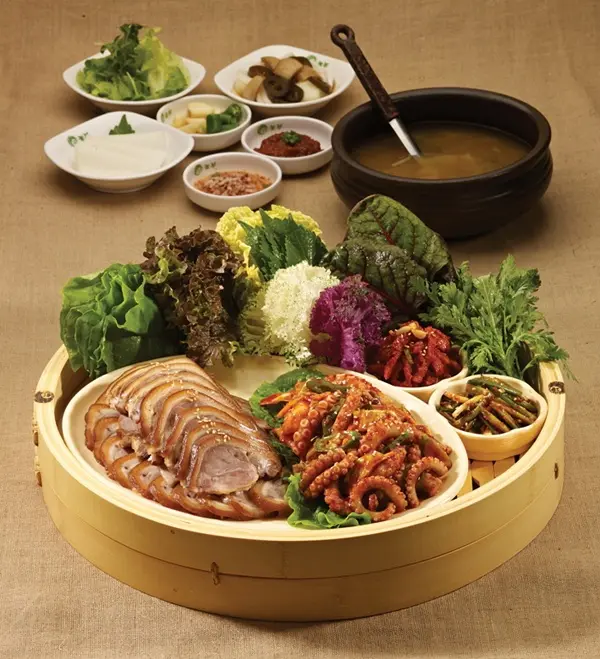
But don’t worry. I’m going to give you a very easy, foolproof recipe that anyone can make! The secret is actually cola. This bossam uses cola, which adds sweetness, enhances the color of the meat, and even tenderizes it. Koreans call this version “cola bossam.” Since it doesn’t require any herbal medicine, cola bossam is one of the most popular homemade bossam recipes.
Which Cut of Pork Should You Use?
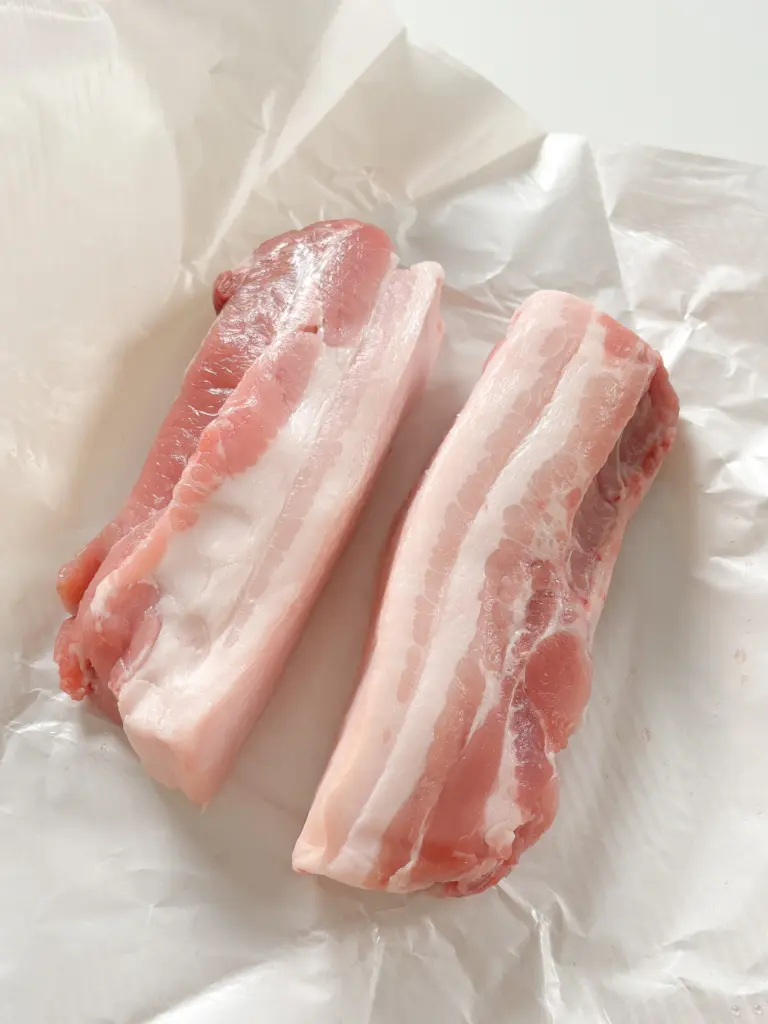
For Bossam, you can use pork belly, pork neck, front leg, or shank.If you prefer a leaner cut, choose pork neck. If you like a firmer, chewy texture, shank meat is a great choice.
But if you love juicy, tender pork like I do, I highly recommend the thick, fatty pork belly! Oh, be sure to use a whole, thick cut rather than thinly sliced pork for the best results.
Pork Belly Kimchi Jjim (Braised Kimchi)
Another Korean dish I recommend using pork belly for is kimchi jjim (braised kimchi with pork). The tender, melt-in-your-mouth pork paired with the kimchi is absolutely delicious. It’s one of my favorite Korean dishes!
Easy Bossam Recipe: Tender Pork Made at Home
If you love Korean food, you have to try this cola bossam! The secret ingredient is actually cola. Not only does it add a subtle sweetness, but it also enhances the color of the pork and helps tenderize the meat, making it soft and juicy.
Koreans call this style cola bossam because of the cola used in the cooking process. Unlike traditional bossam recipes that require various herbs, this version is simple and perfect for cooking at home.
Why Cola Works in Bossam
Cola contains natural sugars and acids that help break down the meat fibers, giving your bossam a tender texture. It also adds a slight caramelized color and a hint of sweetness that balances perfectly with the savory pork.
Cola Bossam Recipe
Follow this simple cola bossam recipe to make tender, juicy pork with a rich flavor.
Ingredients
- Thick pork (pork belly works best)
- 1 onion, cut into large chunks
- 1 green onion, cut into large pieces
- 3-4 garlic cloves
- 1-2 tbsp oyster sauce
- 1-2 tsp soy sauce
- Black pepper to taste
- 1 can of cola
- Water
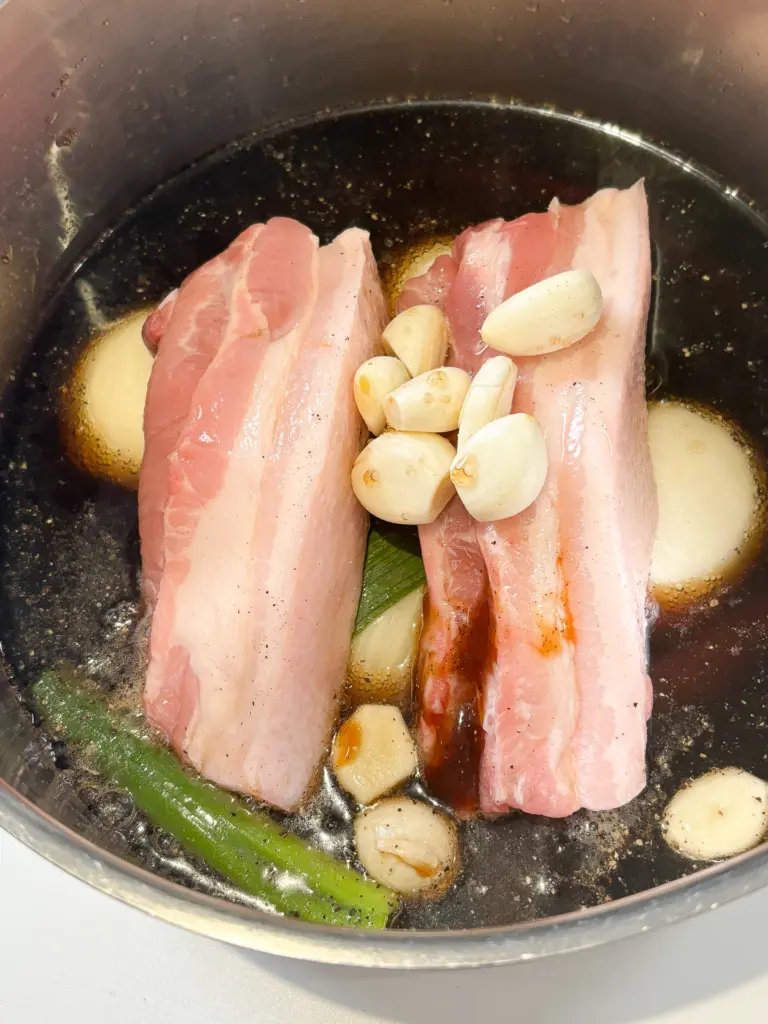
Instructions
- Place the chopped onion and green onion at the bottom of a deep pot.
- Lay the thick pork on top of the vegetables.
- Add garlic, oyster sauce, black pepper, and soy sauce. Pour in the cola and enough water to partially cover the pork.
- Cover with a lid and bring to a boil over high heat. Once it starts boiling, reduce to medium-low heat.
- After 15 minutes, flip the pork once and continue simmering for another 25 minutes. Turn off the heat and let the pork rest for 10 minutes. This step allows the juices to fully absorb, making the meat tender and flavorful.
What Do You Eat with Bossam Kimchi?
Bossam is typically wrapped in salted cabbage leaves, lettuce, or kimchi. When eating bossam with kimchi, fresh, lightly fermented kimchi (bossam kimchi) is preferred.
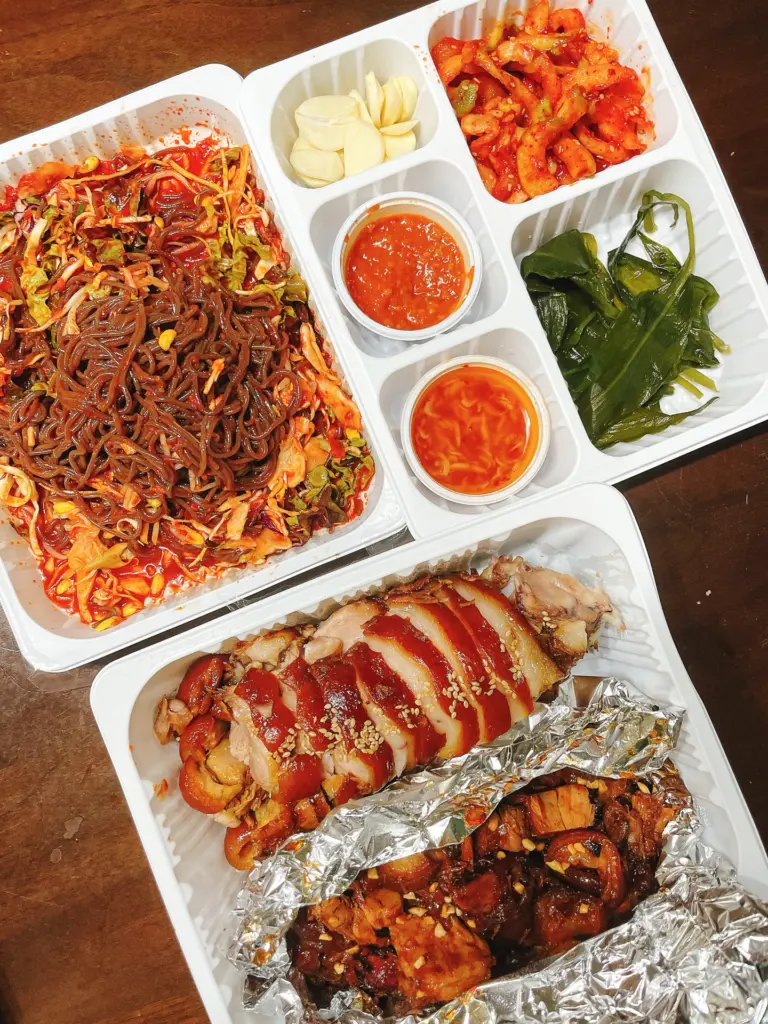
Side dishes include dried radish salad (mumallaengi), spicy radish salad (musaengchae), or pickled radish wraps (musam). Koreans often enjoy makguksu (buckwheat noodles in a tangy, spicy, and sweet sauce) with bossam. The refreshing, slightly spicy, and sweet flavors of makguksu perfectly balance the richness of the pork, making it an amazing combination!
Sauces for Cola Bossam Kimchi
The most common sauces served with bossam are fermented shrimp (saeujeot) and ssamjang. Saeujeot not only enhances the flavor of the pork, but also contains enzymes that help break down fat, making it easier to digest. Many Korean food pairings are designed with health benefits in mind!
For today’s special sauce, we’ll use the broth from cooking the pork as a dipping sauce. This will enhance the umami, keep the pork moist, and make it even more delicious. This broth is pure gold-don’t throw it away!
How to eat bossam?
Bossam is a type of ssam (wrapped food). Bossam is a dish made to be wrapped and eaten. You can wrap it in salted cabbage leaves, fresh cabbage leaves, lettuce, perilla leaves, or kimchi.
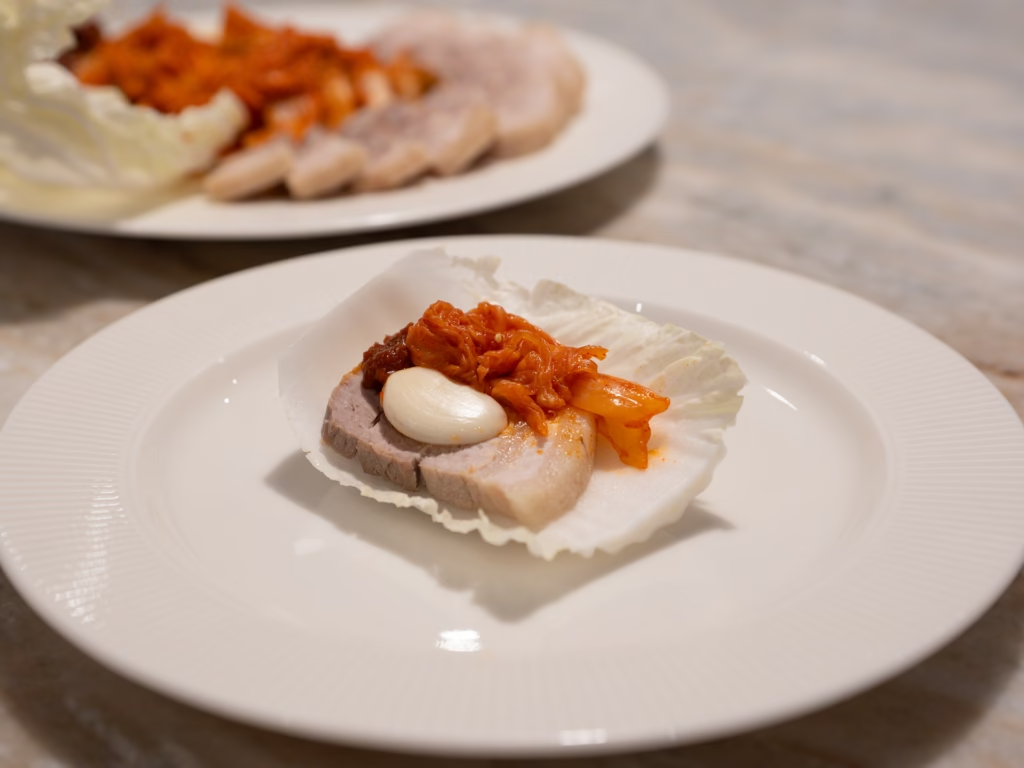
- First, place a piece of pork on the wrap of your choice (cabbage, lettuce, kimchi, etc.).
- You can dip the pork in fermented shrimp sauce (saeujeot) for extra flavor.
- Add 1-2 pieces of shrimp from the saeujeot to the pork and a small amount of ssamjang (Korean dipping sauce).
- You can also add sliced raw garlic or chili peppers for extra kick.
- Now wrap everything neatly into a bite-sized package.
A common mistake foreigners make! Never bite into the wrap! Ssam is meant to be eaten in one bite. The beauty of ssam is how all the ingredients come together in a single mouthful for the perfect balance of flavors!
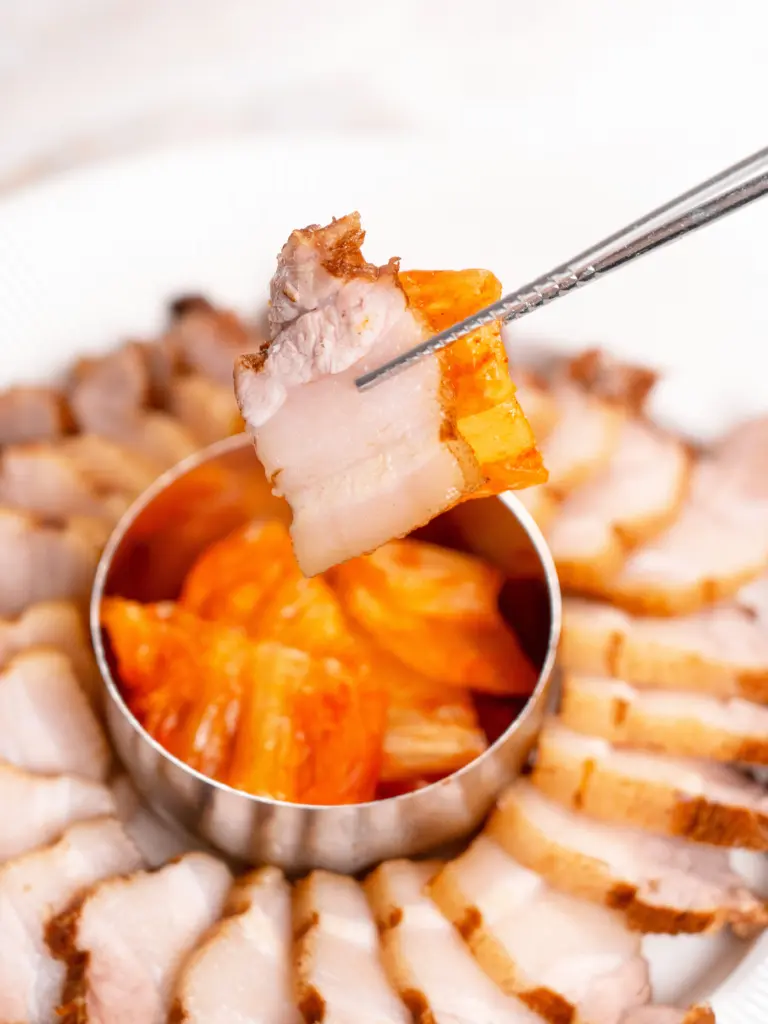
What is difference between bossam and jokbal?
You may be curious about the difference between bossam and jokbal.
- Jokbal (족발) literally means “pig’s feet” in Korean. However, it’s not just the feet – the entire pig’s leg is often used, similar to the German dish Schweinshaxe. To remove any gaminess, jokbal is cooked with a variety of aromatic spices such as ginger and cinnamon. Jokbal is cooked with the skin on, which makes it rich in collagen and gives it a chewy, gelatinous texture.
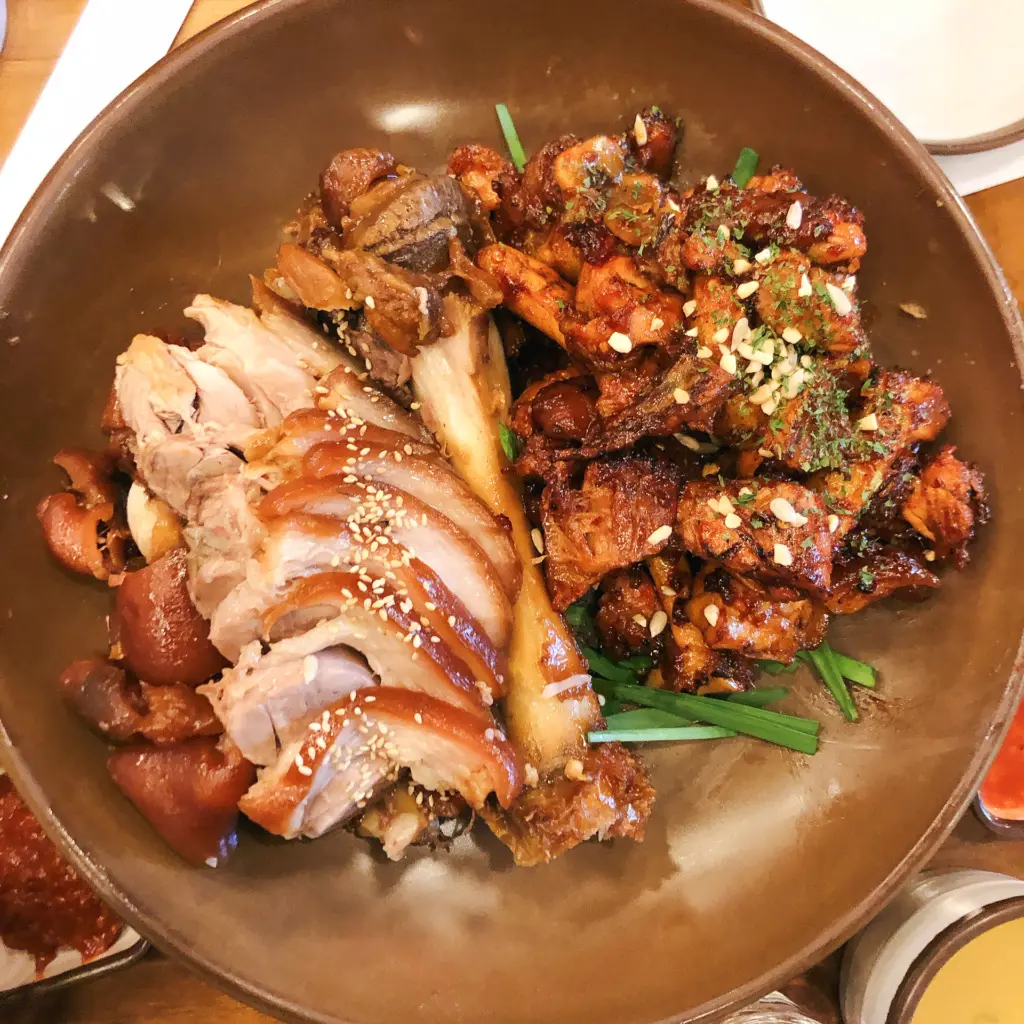
- Bossam(보쌈), on the other hand, is made with pork belly, neck, or front leg meat. Compared to jokbal, it uses fewer spices and has a lighter color. Bossam can be cooked with or without the skin, similar to jokbal, but if it does have skin, it’s thinner and less chewy compared to the thick, tough skin found on pig’s feet (jokbal). Instead, it consists of tender meat with layers of fat, resulting in a softer, melt-in-the-mouth texture.
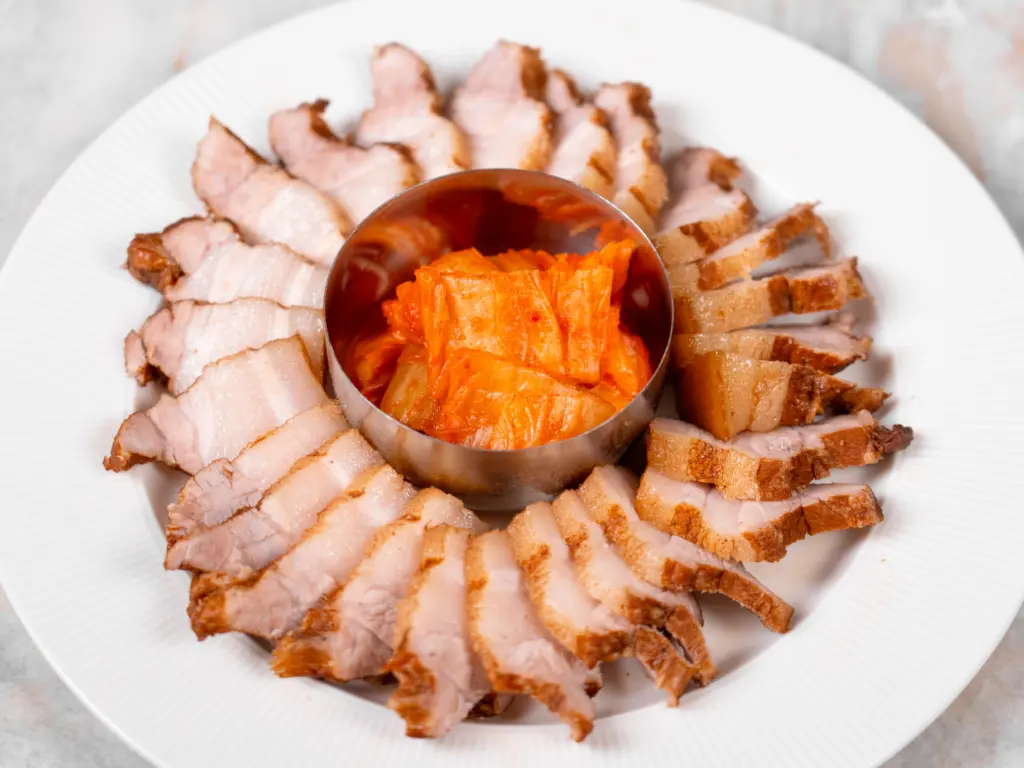
What to Drink with Bossam?
There’s no right or wrong answer here, but soju is the most popular drink among Koreans when eating bossam. While some people drink makgeolli (Korean rice wine), Koreans usually prefer soju with fatty meats. Soju has a higher alcohol content than other drinks and a clean, crisp flavor that helps cut through the richness of the pork, making it the perfect pairing!
The Easiest and Most Delicious Bossam Recipe
Today, I’m going to share with you the easiest, juiciest, and most delicious bossam recipe. Sometimes it’s hard to find the ingredients used to make bossam in Korea when you’re abroad, but today we’re going to make it with cola, an ingredient that’s easy to find anywhere.
Korean bossam is known for being tender and free of any gaminess, but it requires a bit of technique. However, in this recipe, I’m going to show you an easy, foolproof way to make bossam that you can’t mess up. I hope this recipe makes your table even more delicious! Are you ready to make Bossam together today?
FAQ about Cola Bossam
What is Bossam in Korean?
Bossam is called Bossam 보쌈 in Korean.
How is Bossam made?
Bossam is made by slowly boiling pork in a seasoned broth with soy sauce or doenjang (fermented soybean paste) until it becomes tender. It is traditionally served with bossam kimchi. But today’s bossam recipe is much simpler—you can make delicious, tender bossam kimchi using just cola.
How to properly eat Bossam?
Dip the bossam pork into salted shrimp sauce or your preferred sauce first, then place it on a fresh cabbage leaf. Add garlic, chili, or any other ingredients you like, wrap it up, and enjoy. If you don’t have cabbage, you can also wrap it in kimchi.
Can you eat Bossam with rice?
Absolutely! Many Koreans enjoy bossam with rice. It’s also common to serve it with makguksu (buckwheat noodles) for a complete meal.
Ingredients for Bossam Kimchi
Disclosure: Blonde Kimchi is part of the Amazon Services LLC Associates Program, an affiliate advertising program that allows websites to earn advertising fees by linking to Amazon.com and promoting products.
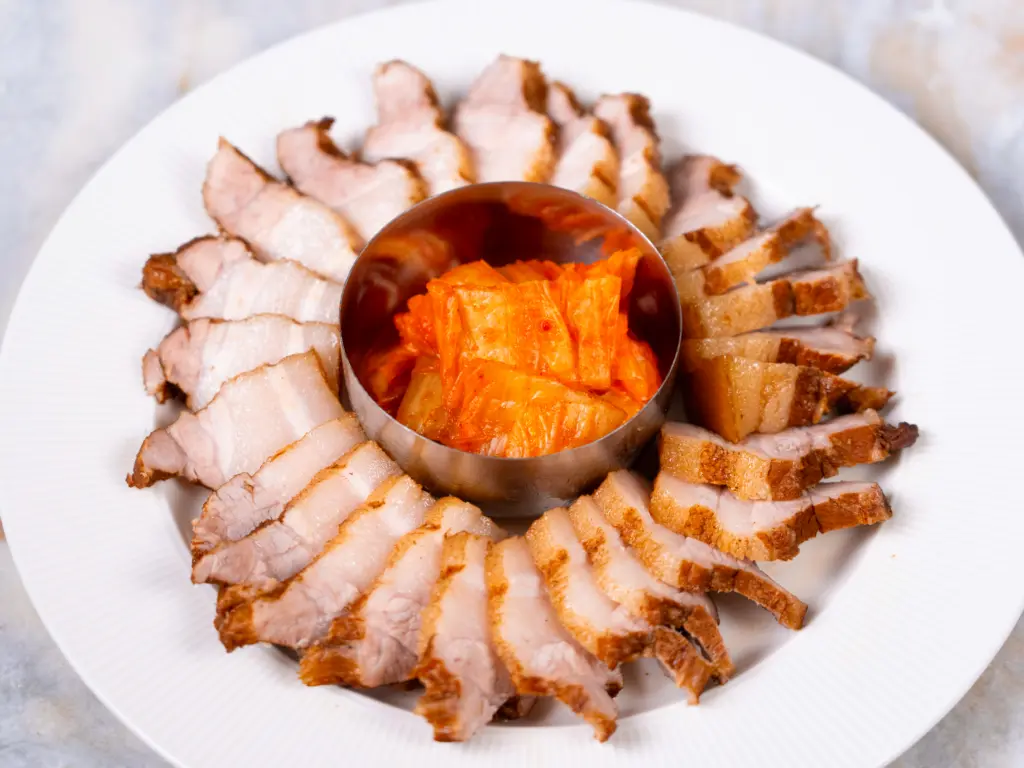
Korean Bossam Kimchi with Coke
Equipment

Ingredients
- 500 g thick pork belly (the more fat, the more tender!)
- 1 stalk green onion
- 10 cloves garlic
- 2 onions
- 10 grinds black pepper
- 700 ml coke
- 200 ml soy sauce
- 2 tbsp oyster sauce
- 1 bowl kimchi
Dipping Sauce
- 1 ladle the broth from cooking the pork
Instructions
- Cut the green onions into large pieces
- Cut the onions in half.
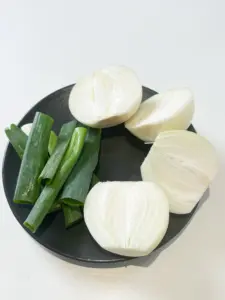
- Place the onions and green onions in a pot.
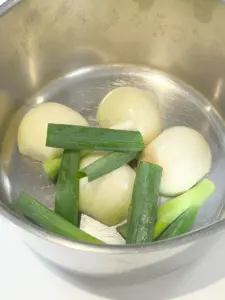
- Add the pork belly.
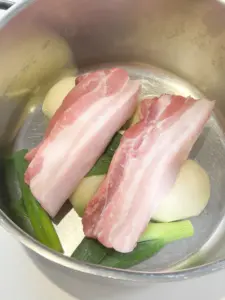
- Add garlics.
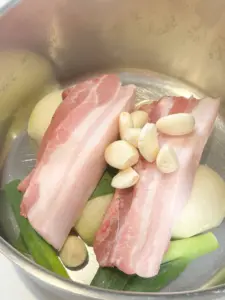
- Pour in 200ml soy sauce, 2 tbsp oyster sauce, and 10 grinds of black pepper.
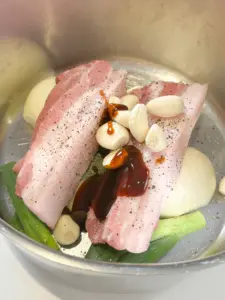
- Pour in enough cola to fully cover the pork.
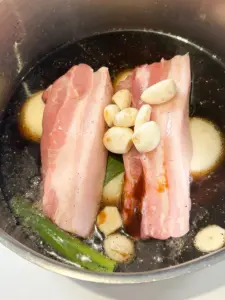
- Add 50ml of water.
- Cover with a lid and bring to a boil over high heat.
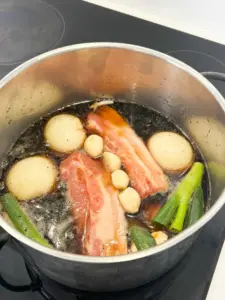
- Once boiling, reduce to medium-low heat. (keep the lid on)

- After 15 minutes, flip the pork (keep the lid on).
- Cook for another 25 minutes. (keep the lid on)
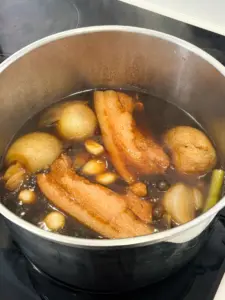
- Turn off the heat and let it rest for 10 minutes—this step makes the meat extra tender!
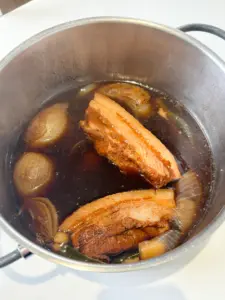
- Slice the pork and serve with kimchi.
- Dip the pork in the broth and wrap it in kimchi for an explosion of flavor!
- Cola Bossam 콜라 보쌈
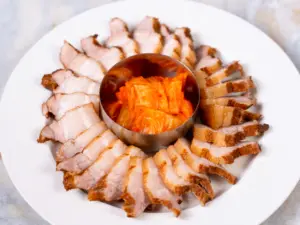
- Jal meoketseumnida! 잘 먹겠습니다!
